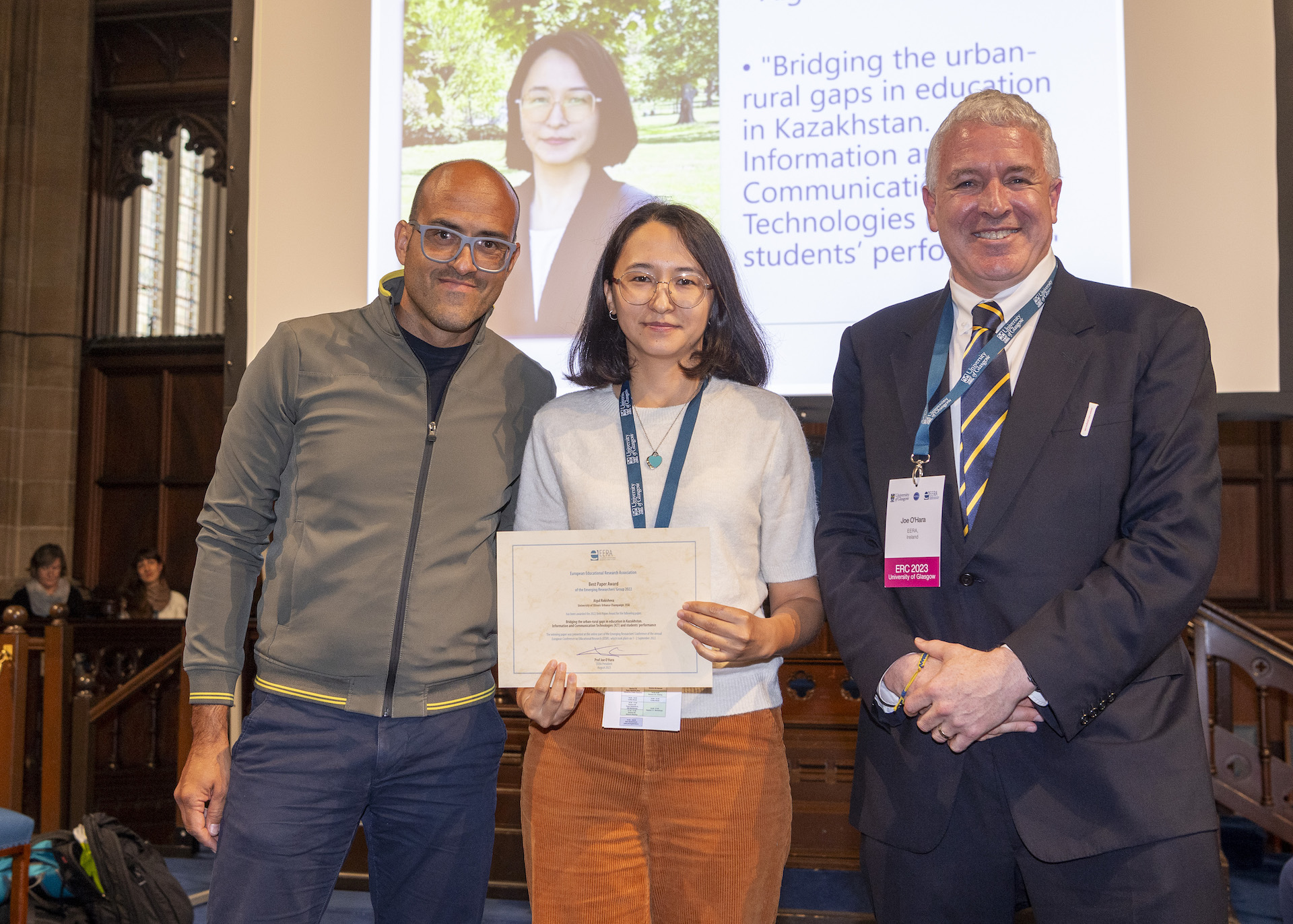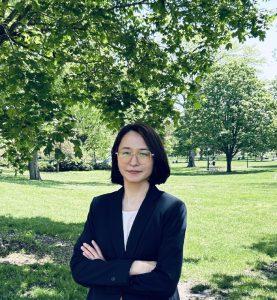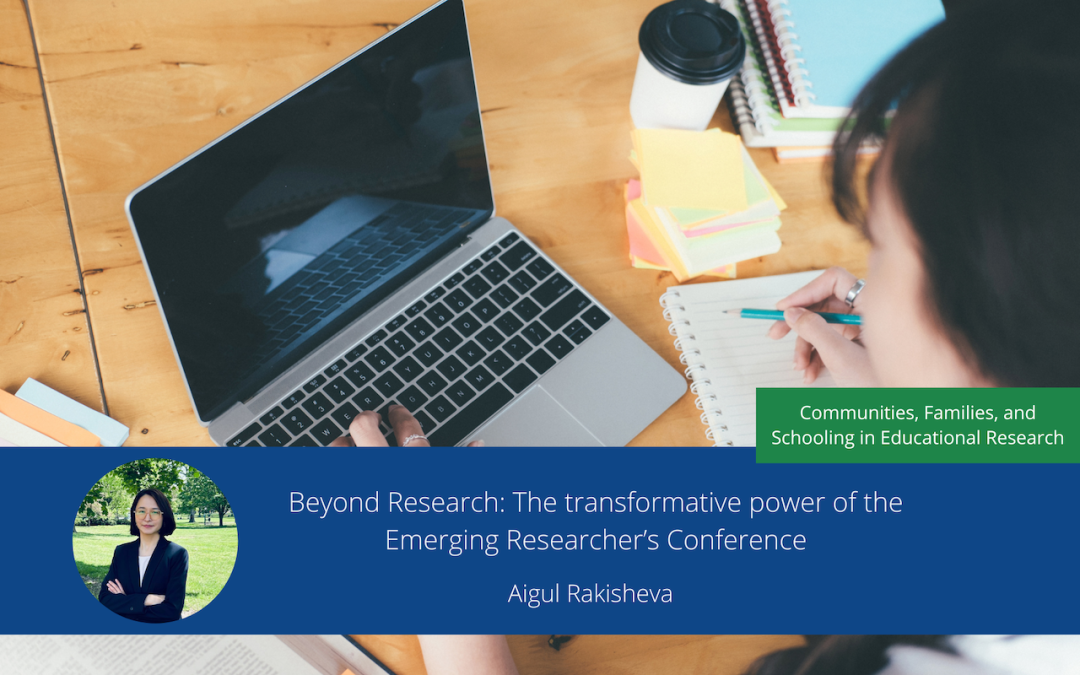EERA’s Best Paper Award is part of EERA’s strategy to promote emerging researchers and support high-quality research in the field of education. The award is specifically designed to motivate young researchers to turn their conference presentations into full papers suitable for publication in research journals.
We asked the winner of the EERA Best Paper Award, Aigul Rakisheva, to tell us about presenting her research at ERC 2022, the invitation to participate in the Best Paper Award (BPA), and the effect it had on her career and her life.
Participation in ERC 2022
The process of writing the manuscript began long before the competition. Initially, I prepared an application to participate in the conference, which resulted in two blind peer-review feedback. I am thankful for the feedback from the peer reviewers, which proved to be instrumental in effectively preparing my presentation. The feedback primarily focused on clarifying aspects of the research methodology, the conceptual framework, and adding a final section that highlights the significance of my work in the European context. While the overall feedback did not require significant changes to my work, it provided essential guidance as I continued to develop the paper based on my research.
Subsequently, I presented my research at the ERC 2022 conference. The disparity in educational outcomes between urban and rural students remains a pressing challenge not only in my home country but also in various regions, including Europe. The study aimed to explore the role of Information and Communication Technologies (ICT) in addressing this issue. By investigating the 2018 PISA data, the research sought to identify how ICT impacts Kazakhstani students’ academic performance in Reading, Math, and Science, potentially bridging the urban-rural education gap. This research adopted a fully quantitative approach, utilizing data from the 2018 PISA assessment, which includes a diverse sample of Kazakhstani students from both urban and rural schools. The statistical analysis revealed that access to ICT resources in schools is vital in improving students’ learning outcomes. Additionally, students’ interest in ICT and their perceived competence in using ICT are significant factors contributing to their academic success.
An invitation to participate in the Best Paper Award
About a month after presenting my work, I received a call inviting me to participate in the Best Paper Award (BPA) competition. Initially, I felt concerned that my manuscript was not fully prepared, and I doubted if I could meet the short time frame and the rigorous review process. However, after careful consideration, I realized that participating in the competition would be beneficial for several reasons. Firstly, the set time frame would motivate me to expedite the completion of my manuscript. The additional expert review would be invaluable in improving my paper, making it more robust and suitable for submission to a reputable journal for consideration.
Additionally, selected authors can submit their work published in the international peer-reviewed European Educational Research Journal (EERJ) and Studia Paedagogica journals which I believe to be a great opportunity. These platforms offer scholars an excellent opportunity to share their findings on local or national European studies, further amplifying the impact and relevance of their research within the scholarly community.
The process
Participation in the competition involves a months-long journey, during which emerging scholars tirelessly work on their articles, adhering to deadlines. During this process, I sought formative feedback, further enhancing my work and providing clear direction for improvement. I also engaged in discussions with my co-author Dr. O. Toskovic, which proved immensely beneficial in refining my ideas, strengthening my arguments, and ultimately producing a more polished and impactful paper. The iterative nature of incorporating feedback has been crucial not only for my paper but in my growth as a researcher and has allowed me to continually strive for improvement.
Winning the Best Paper Award

Winning the Best Paper Award increased the visibility of the study within the academic community. This award not only acknowledged the significance of our work but also drew attention from researchers and other emerging scholars. This recognition has paved the way for further dissemination and opportunities for my research to make a broader impact.
I encourage future participants in the Best Paper Award to embrace the spirit of competition and rise above any self-doubt that may hinder their progress. While it is natural to have uncertainties about the quality of the work, remember that what truly matters is the invaluable feedback you receive and how you utilize it to fuel continuous improvement. Embarking on the journey toward excellence entails an unwavering commitment to growth and lifelong learning.
Key Messages
- Engaging with ERGs/ERCs provides valuable networking and collaborative opportunities with fellow researchers and education experts.
- Participating in ERGs/ERCs can enhance the visibility of researchers’ work, potentially leading to broader dissemination and increased recognition.
- Involvement in ERGs/ERCs cultivates better communication skills and boosts emerging researchers’ confidence as they interact with peers and present their work to diverse audiences.
- ERGs/ERCs create a nurturing environment that encourages constructive feedback, paving the way for ongoing research enhancement and continuous improvement.

Aigul Rakisheva
Third-year Ph.D. student at the University of Illinois-Urbana Champaign, USA
Aigul Rakisheva is a third-year Ph.D. student at the University of Illinois-Urbana Champaign, USA.
She is currently pursuing her doctoral degree in Education Policy, Organization, and Leadership Department with Global Studies in Education concentration. Aigul is actively engaged in research and teaching activities at UIUC.Her research focuses on Virtual Exchange, Information and Communication Technologies, and Initial Teacher Education, contributing to various research projects in these areas.
For more information about Aigul’s academic work and research interests, please visit her university researcher profile: https://blogs.illinois.edu/view/8837/329025165

